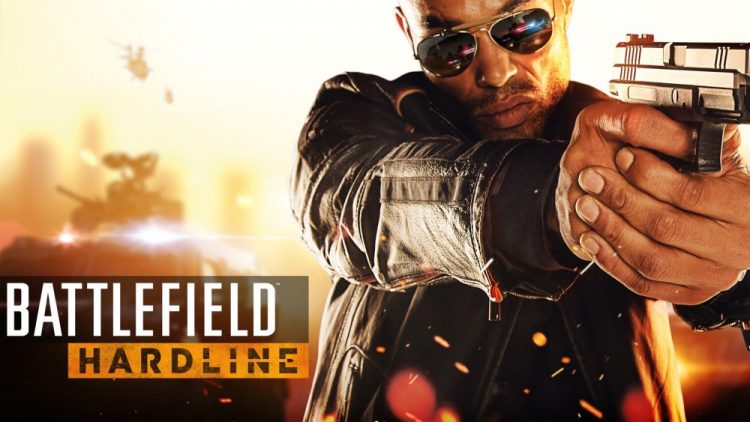
The police are frequently featured in films and video games. There’s typically two ways to depict cops: as a hero or as a menace. On which end of the spectrum do video games fall when they portray law enforcement?
Battlefield Hardline goes to the extreme and puts SuperCop Jackie Chan to shame. Police and soldiers aren’t the same, but this particular installment blurs the lines between the two. Weapons, gear, and vehicles abound – each giving you a variety of ways to kill criminals. While you’re rewarded for ‘diffusing the situation’ non-lethally, it’s evident that the system was built around running and gunning just like the rest of the Battlefield series. In this game, murder is acceptable as long as you’re the ‘good guy’.
It is virtually impossible to complete Battlefield Hardline in a manner that would be expected from traditional law enforcement. If war games give kids unrealistic views and expectations about soldiers, these types of games certainly give false impressions about police. Why bother cuffing them when you can shoot them instead? The repercussions of that attitude particularly resonate given the political climate in the United States. Simply put, it’s a fantasy built upon a skeleton of what may have once resembled a nugget of truth.
We each have our own preconceived notions and like to stick with them because that’s comfortable. Television plays a part in perpetrating these myths about criminal justice. It’s a case of expectations versus reality. We see TV programs that depict murders as getting solved in 60 minutes or less, courtesy of grossly exaggerated forensics techniques. Fingerprint matches come instantly. That’s of course after the car chase and shootout led the cops directly to the bad guy’s lair. If anything it appears that video games are simply interactive versions of the facsimile of life we already see on TV. It’s glamorous and fast and oh-so exciting. Often games feature tropes from every law enforcement specialization is rolled into one. You kick down the doors, detain and question suspects, collect forensic evidence, conduct stings, and kill anything that looks at you funny. This represents a misrepresented and misunderstood idea of criminal justice as a whole. When did cops in video games become a one-man task force?
SWAT 4 is the rare game featuring police to have an entire system focused around the concept of authorized and unauthorized use of weapons. Suspects must be given a chance to surrender. Even this does not authorize the use of force. A non-compliant suspect who makes no attempt to aim their weapon at another person cannot be fired upon. You’re only authorized to engage imminent threats, other than in cases of returning fire.
Taking suspects alive is both rewarded and demanded to progress through the game while obtaining the highest scores possible. Getting in a shootout is similarly punished. If you or any members of your team sustain damage, your performance score is lowered. Similarly, if hostages or other civilians are unduly harmed you will likewise lose significant points or potentially fail the mission entirely. You are there to diffuse the situation while keeping your team and the suspects alive if possible – not to shoot first and ask questions later.
The goal is always to resolve the situation with as little loss of life as possible, just as it should be in real life. On the highest levels of difficulty, you will automatically fail a mission for killing even a single suspect, armed or otherwise. No exceptions. To succeed in SWAT 4, by necessity you must develop a digital trigger discipline that apparently puts police officers around the United States to shame. To ‘win’ in this game, protocol must be observed and obeyed and everyone must be given a chance at due process.
Blurring the lines of reality and depicting cops as the equivalent of soldiers is dangerous because the truth is that their roles are vastly different. Police officers were never intended to be street-level warriors, enforcing the law at the barrel of a gun. What ever happened to ‘Protect and Serve’?

